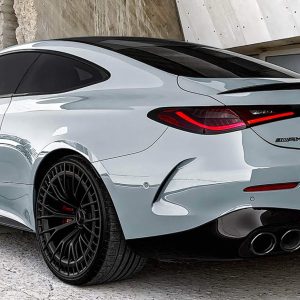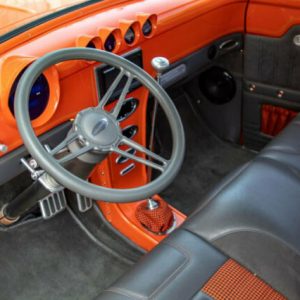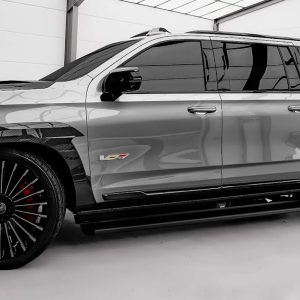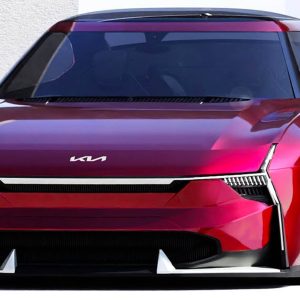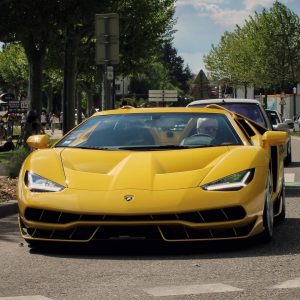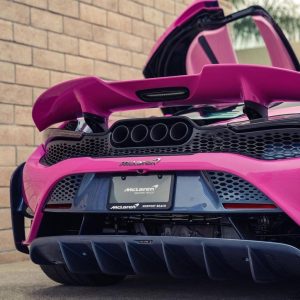Maranello have just pulled the covers off their latest halo hypercar, the magnificent Ferrari F80. Using the same engine architecture as the Le Mans-winning 499P, the F80 is the most powerful prancing horse of all time.
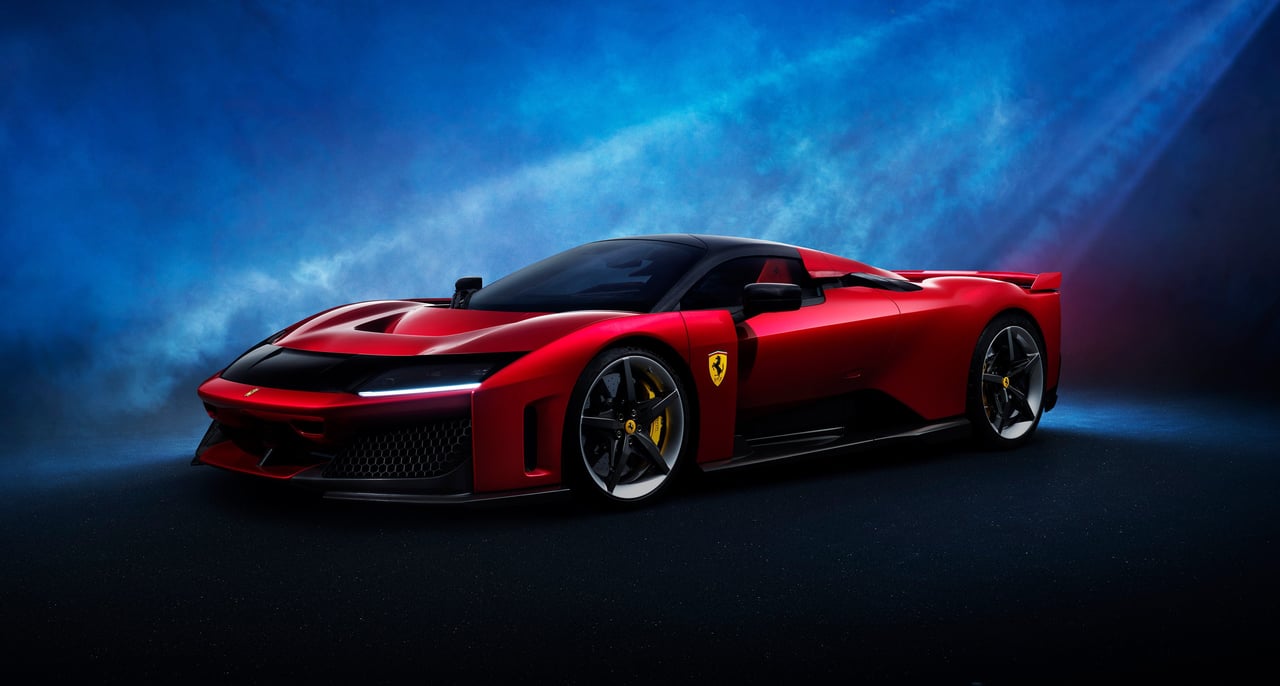
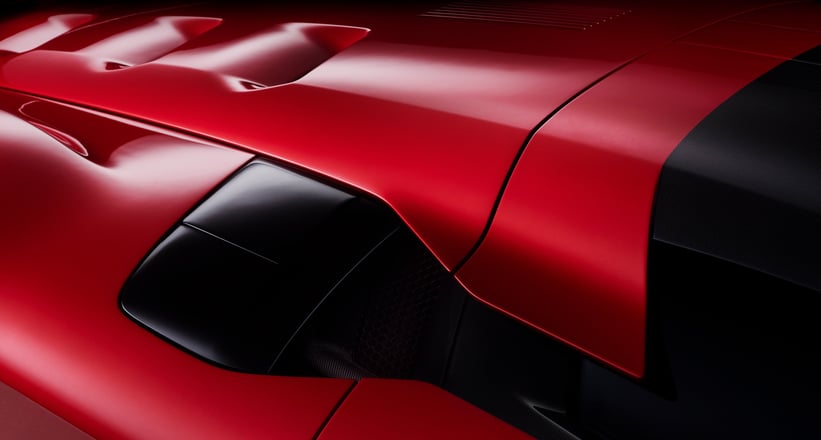
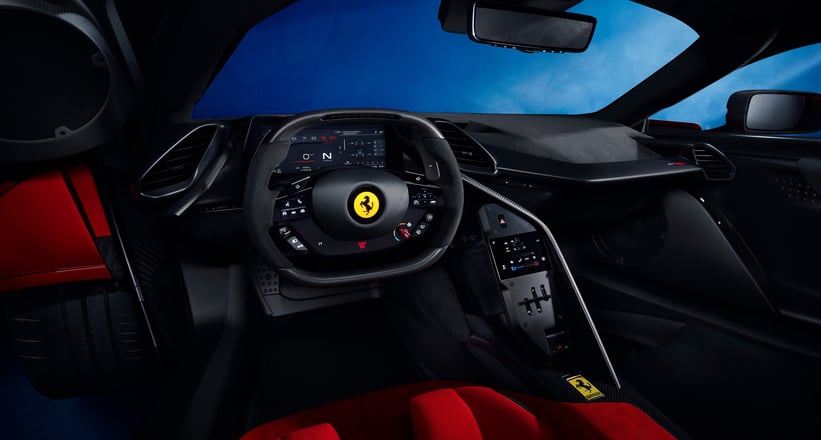
Hot on the heels of the McLaren W1, Ferrari have just unveiled the successor to the LaFerrari and the latest in a long line of halo dream cars from Maranello: meet the F80. Ferrari states the F80 is the pinnacle of what they can achieve in terms of road car performance with current technology, but while the LaFerrari had 12 cylinders to play with, the F80 makes do with just half that number.
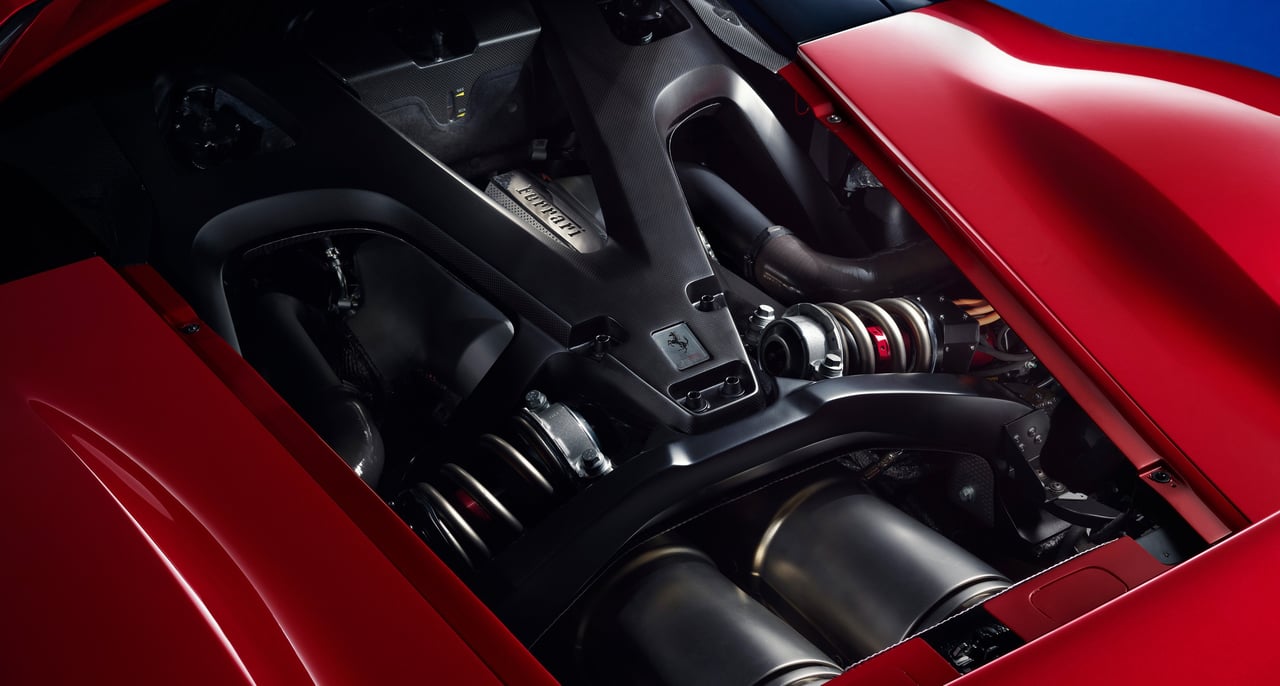
However, if ever there was a V6 worthy of powering Ferrari’s crème de la crème, it’s the one found in their Le Mans-winning 499P, and it’s that exact engine architecture that you’ll find nestled behind the cabin. Ferrari claim the F80 shares the WEC racer’s crankcase, layout and drive chains of the timing system, oil pump recovery circuit, bearings, injectors and GDI pumps. Coupled with a specially-designed lightened flywheel and an inconel exhaust, and the F80 should sound fairly raunchy, despite being down on cylinders.
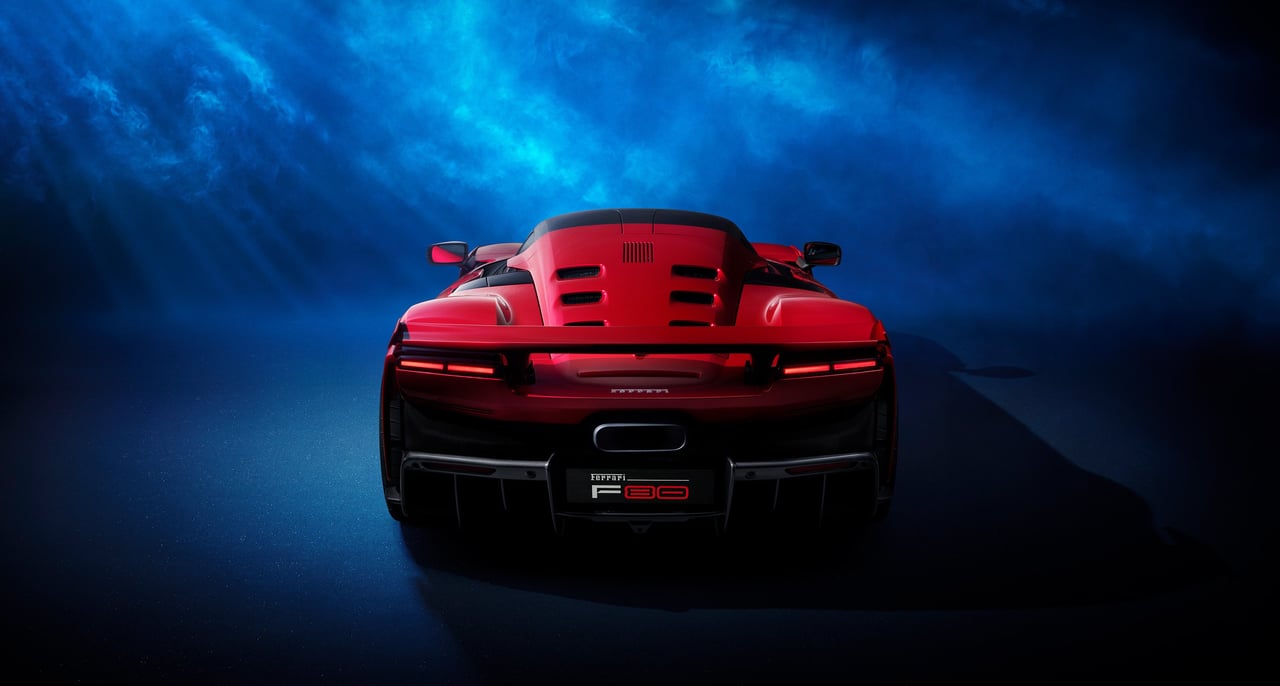
Hypercars are all about the numbers, though, and the F80’s spec sheet is well endowed to say the least. The turbocharged 3.0-litre 120 degree F163CF V6 that serves as the F80’s beating heart is capable of revving up to 9,200 rpm and puts out 888 horsepower alone, which at 296 horsepower per litre gives it the highest specific power of any Ferrari engine. Couple that with another 296 horsepower courtesy of a pair of electric motors at the front and another at the rear — the first electric motors developed from scratch in-house at Maranello — and you have a 1,184 horsepower monster. 0-60mph is dispatched in 2.1 seconds, 120mph arrives in just 5.75 seconds, and the F80 will hit the limiter at a McLaren W1-matching 217mph. Slow it is not.
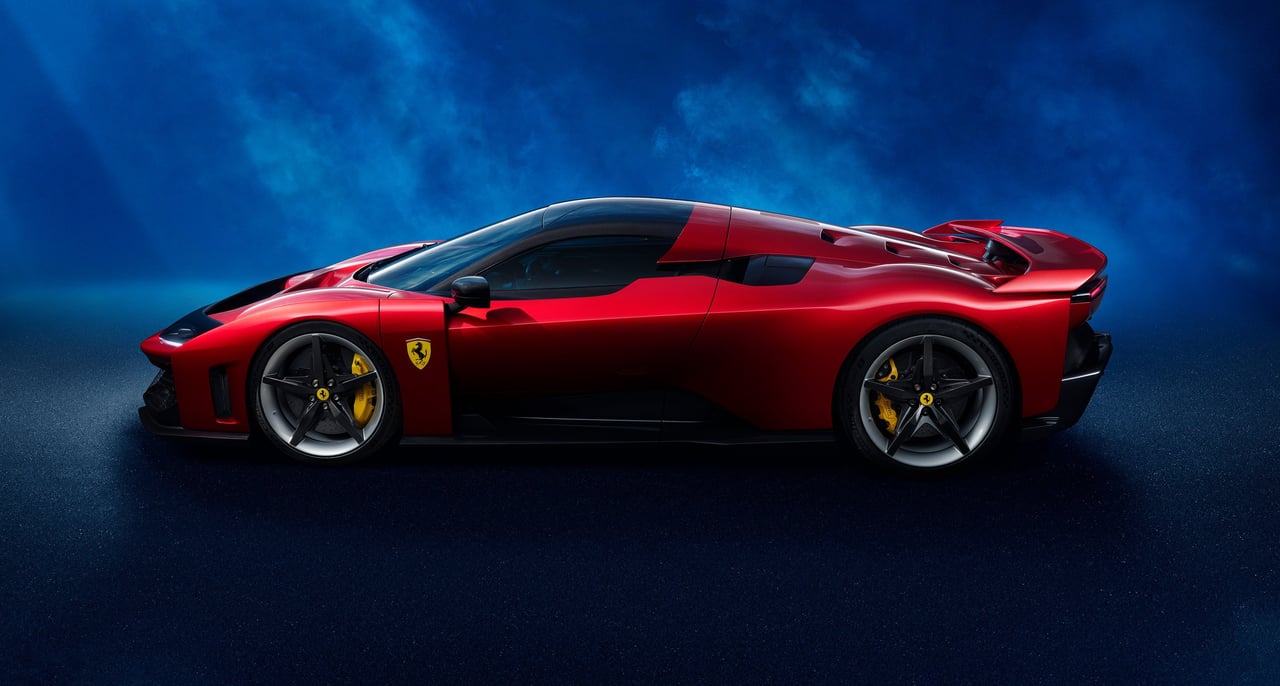
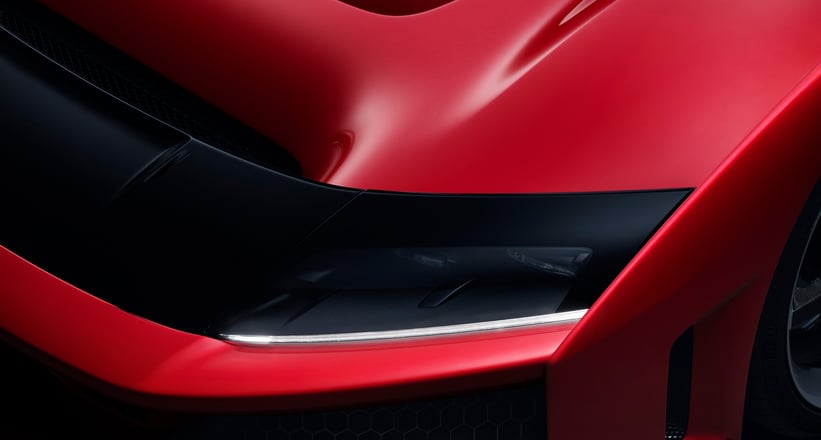
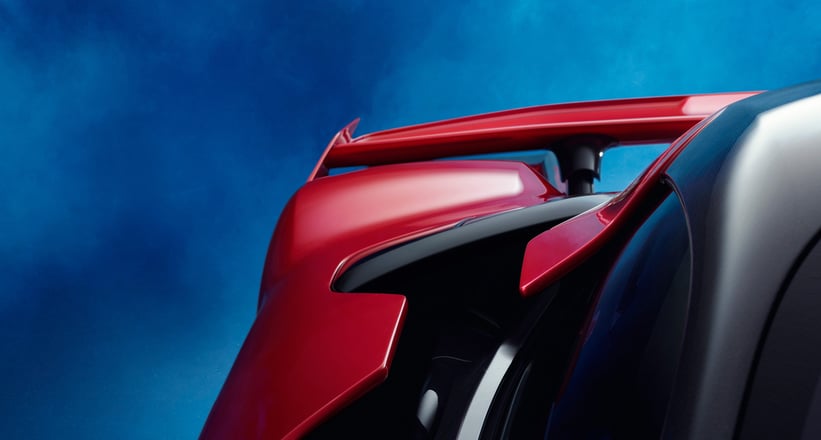
Visually, there’s a lot to take in with the F80, which looks like a fusion of the 12Cilindri and SF90 XX, while there are also plenty of nods to icons of Ferrari’s past. Those vents aft of the front wheel arches look like they were plucked straight from the F40, while there are nods to the Daytona with the black visor conjoining the headlights, but otherwise the F80 certainly possesses its own unique visual character. At least in the looks department, we think this easily trumps the McLaren W1, and the 1000 kg of downforce produced at 155 mph is also nothing to sniff at.
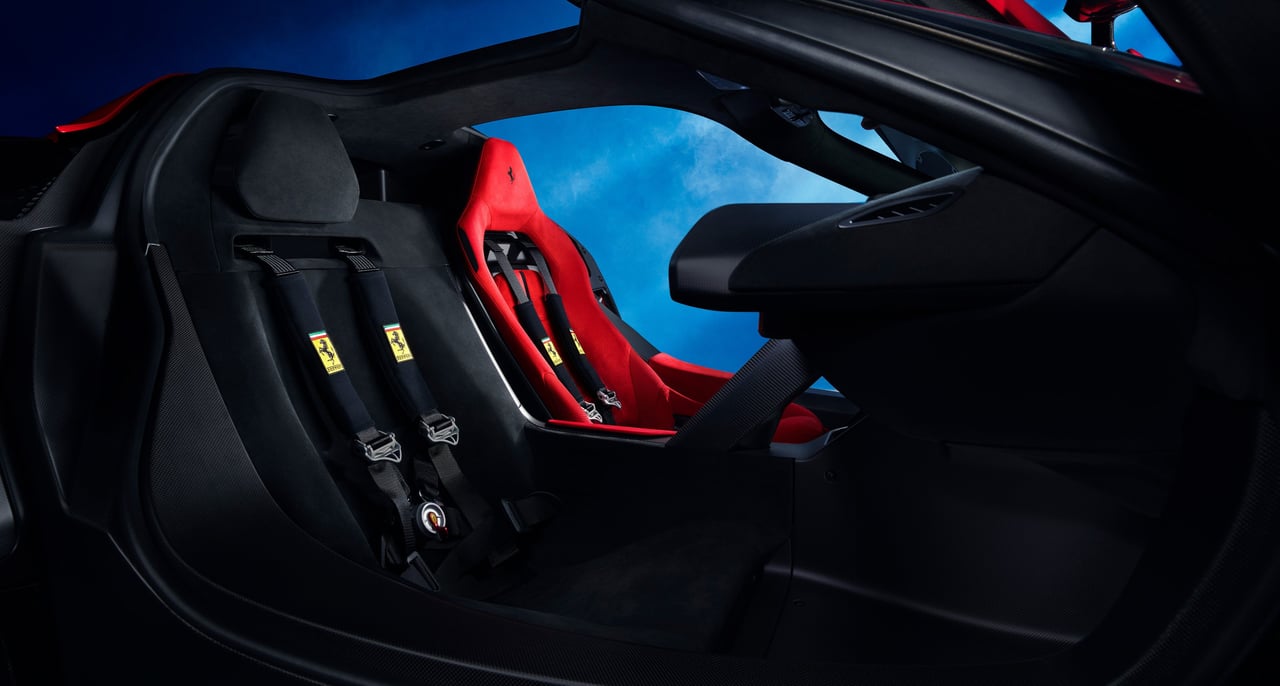
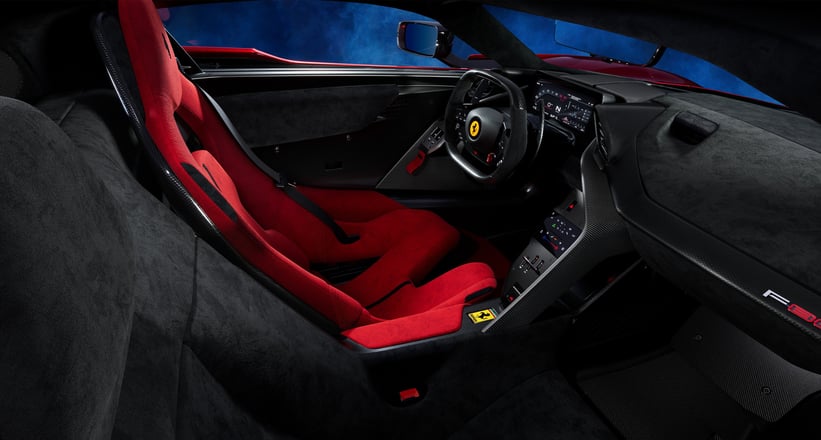
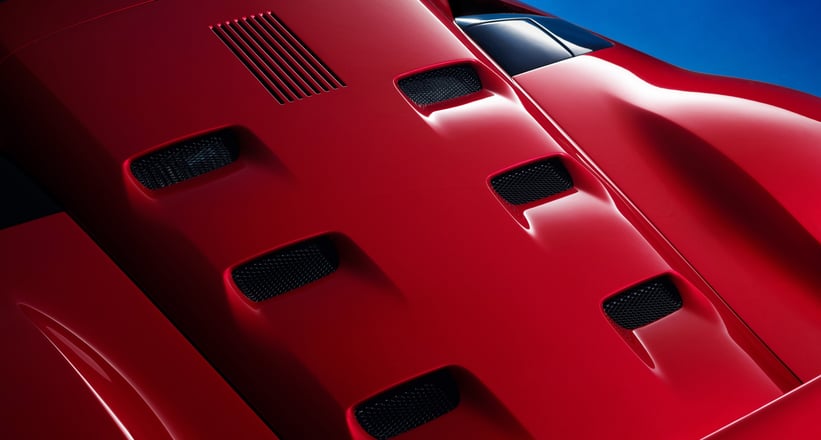
Under that gorgeous bodywork, the F80 is equipped with an entirely new bodyshell composed of pre-preg carbon fibre which is cured in the autoclave using F1-derived tech. The tub and other components of the F80’s chassis are a wondrous concoction of carbon fibre and other composites, while the front and rear subframes are made of aluminium and are fastened to the tub with titanium screws. Ferrari even state that the greenhouse sits a whole 50mm lower than on the LaFerrari, adding to the F80’s menacing stance.
Lift the F80’s butterfly doors — which use a special dual-axis hinge mechanism to open almost 90 degrees — and you’ll discover that the stripped-out cabin employs an innovate asymmetrical “1+” layout that places the driver right at the centre of the action. The passenger “seat” is set significantly behind the driver, and is really just a vaguely person-shaped indent in the carbon monocoque with a cushion for a headrest.
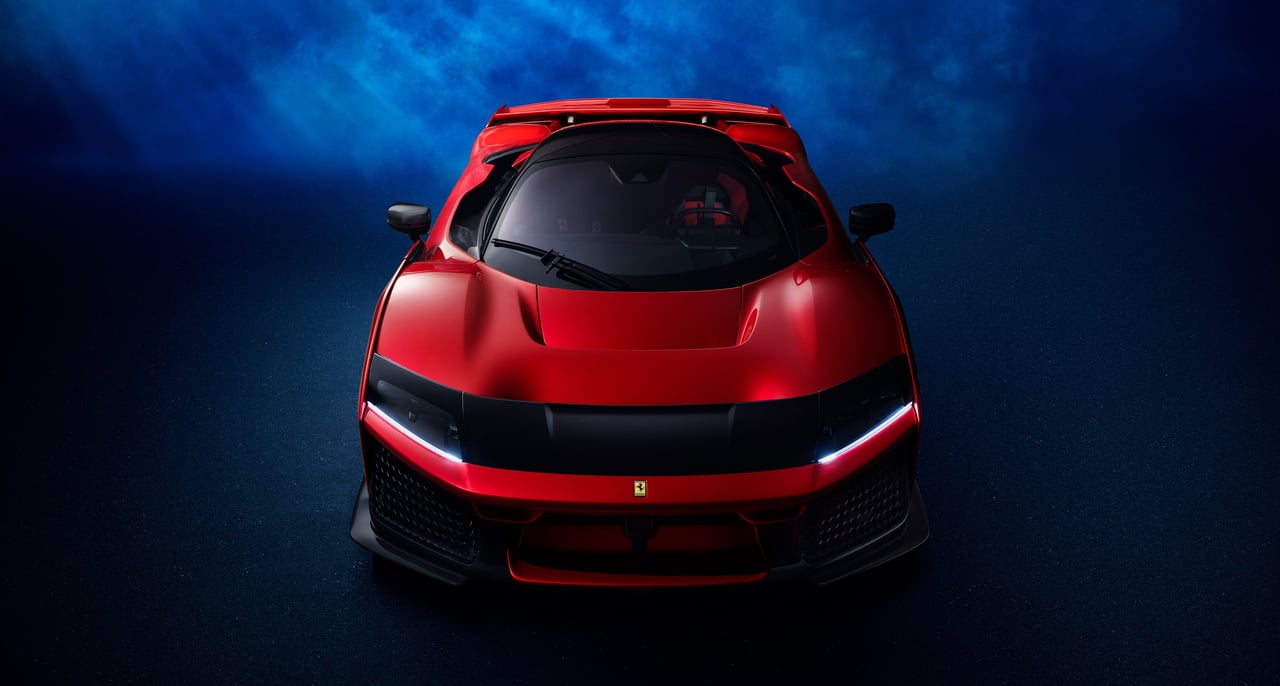
Don’t expect much of a frunk either, because the F80’s nose is dominated by a gargantuan S-duct to help achieve that impressive downforce figure. Thanks to Ferrari’s extensive weight-saving, the F80 weighs in at 1,525 kg dry despite the huge amount of mechanical complexity. That’s over 100 kg more than the more-powerful McLaren W1, but with the F80 being all-wheel-drive it will be interesting to see the two duke it out on track.
Ferrari will make just 799 F80s, each priced at 3.6 million euros. Now we just have to wait for the arrival of the production version of the Porsche Mission X to complete this new Holy Trinity.
